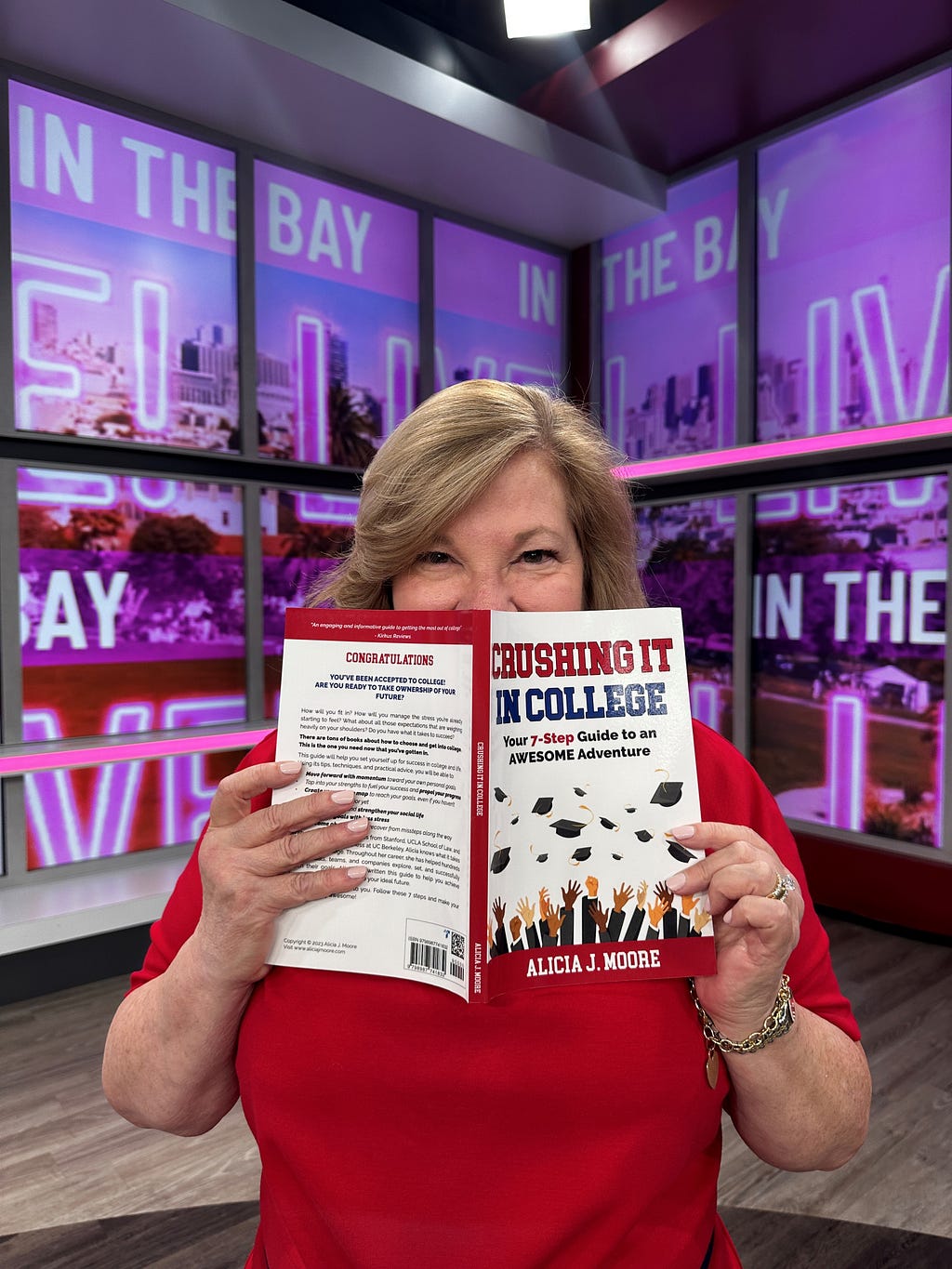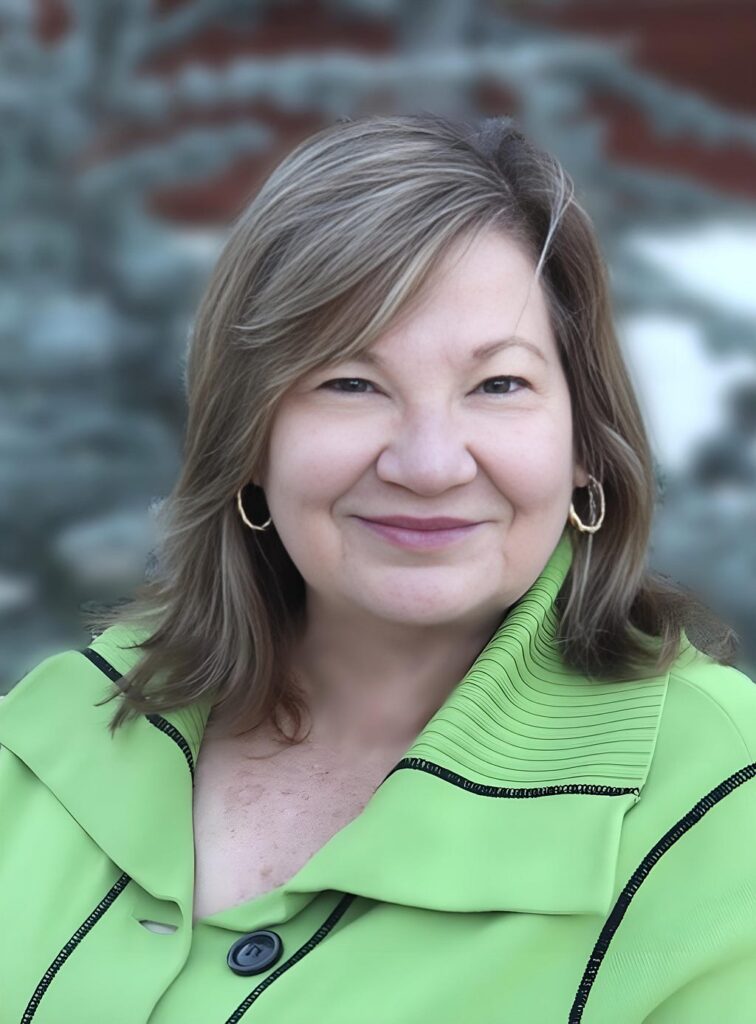An Interview With Jake Frankel
Make your message resonate with your readers, and understand why it’s important to them too.
As part of my series about “How to write a book that sparks a movement” I had the pleasure of interviewing Alicia J Moore.
A successful consultant, author, and speaker Alicia is the CEO of Strategic Impact Solutions. She serves as a member of the Board of Directors for the innovative Bay Area Resource Area for Teachers (RAFT), an educational non-profit that promotes STEAM and kinesthetic learning, and supports teachers. Throughout her career as a senior executive in start-up companies through $1B+ public companies, Alicia built, bought, integrated and ran legal, HR, corporate business development, and administration departments. She is well known for helping individuals, teams, groups, companies, and Boards of Directors create and successfully achieve strategic, tactical and developmental goals. Alicia is passionate about the value of life-long education as a foundation to create transformative growth. With degrees and certificates from Stanford University, UCLA School of Law, and the Haas School of Business at UC Berkeley and VCU, respectively, Alicia knows what it takes to maximize your college experience at any age. She is the author of the international #1 bestselling book “Crushing it in College: Your 7-Step Guide to an Awesome Adventure.” Through the book, Alicia’s mission is to spread the joy of learning to everyone and help high school graduates set themselves up for success in college, and life.
Thank you so much for joining us! Can you share the “backstory” of how you grew up?
I grew up in a family that valued education, and I saw first-hand the difference that life-long learning can make. My parent married right after high school, then promptly attended different colleges — 300 miles apart! Back then, some women went to college to get their “Mrs” degree, so my mom was subjected to criticism by her professors and peers, questioning why she was continuing on. She dropped out a semester when she had me, then left me with my grandparents while she returned to college to complete her teaching degree. As a two-year old, I stood on a chair and yelled “That’s my Mommy” when she took the stage to receive her diploma, to the amusement of the graduating class. With her and my father’s respective degrees, they were positioned to provide financial stability and upward mobility for our young and growing family.
When you were younger, was there a book that you read that inspired you to take action or changed your life? Can you share a story?
It was “Hop on Pop”, by Dr. Seuss. That was the first book I learned to “read” after memorizing it from having it read to me over and over (it was my favorite bedtime routine: my Dad read it to me every night before bed).. I loved the rhymes, sounds, and mental pictures it created. It opened the door to a love of reading for me, and the confidence that I could do it myself.
What was the moment or series of events that made you decide to bring your message to the greater world? Can you share a story about that?
It really was a culmination of moments: there has been such a barrage of negative press about college, disparaging the value of the experience, questioning the cost (and debt). At the same time, there are statistics and stories of people dropping out, and stressed out, and lost in the system. I firmly believe that when it is done right, college can be the best investment you can make in yourself and your life, and that the college experience is much more than the major you choose or degree conferred.
What impact did you hope to make when you wrote this book?
I hope to inspire college students to take control of their own life in their college years: to define their goals with a clear destiny in mind; to create their own personal, pragmatic map to achieve those goals; and to learn how to build skills and experiences that will serve them throughout their life.
Did the actual results align with your expectations? Can you explain?
It is still early; but students who have used my techniques are generally motivated, happy, resilient, and experiencing a lot of success. They’ve made the Dean’s list, have friends, and are optimistic about their futures.
What moment let you know that your book had started a movement? Please share a story.
I interviewed a lot of high school seniors, college freshmen and college seniors to pull together the content for this book: what they were worried about, struggling with, wished that they had known. I knew that this could be helpful when they checked back with me about the publication date, and referred the book to their friends (who have referred it to their friends). It’s still early, but this is how it starts.
What kinds of things did you hear right away from readers? What are the most frequent things you hear from readers about your book now? Are they the same? Different?
I’ve heard that this book is useful and needed. Parents of students are saying that it has given them comfort that their adult children are better prepared for their college journey.
What is the most moving or fulfilling experience you’ve had as a result of writing this book? Can you share a story?
Throughout this journey, I’ve learned about a lot of things that I hadn’t previously known: forming my own business, creating a website, interacting on social media, writing a book for publication, publishing it, promoting it, etc. It’s been exhilarating and challenging, and scary and fun. But the best has been the people that I’ve met along the way, and the transformation that occurs when the students follow my process to “Dream It. See It. Believe It. Achieve It.”

Have you experienced anything negative? Do you feel there are drawbacks to writing a book that starts such colossal conversation and change?
Of course! Anytime you do something outside your comfort zone, it is scary. You wonder if anyone will like what you’ve written; whether it will make a difference at all; you’re aware of all of your flaws and those in your book…When you care passionately about your message, there is pressure to do it well. So many things can go wrong. And there’s always the risk of the casual reader, who doesn’t engage with the exercises and challenges, and doesn’t do the work. They won’t get the results I know can happen for them.
Can you articulate why you think books in particular have the power to create movements, revolutions, and true change?
Books are capable of being truly transformative to each individual reader: to inspire, provoke thinking, spark imagination, transfer knowledge, create empathy, encourage creativity…each reader reads from their own perceptual framework at any given point in time. Great books let readers take different messages every time they re-read them.
What is the one habit you believe contributed the most to you becoming a bestselling writer? (i.e. perseverance, discipline, play, craft study) Can you share a story or example?
Consistent, even if small, steps forward. As with many authors, I hit a block. I had the outline and ideas, but writing the actual words to express my ideas was becoming a slog. My doubts crept in, and I felt I was being redundant, unclear, and irrelevant. I didn’t feel like writing; and it wasn’t getting any better. After a few weeks of this, with no progress being made at all, I knew I had to do something. The one habit that got me through was to set a timer every day for 15 minutes, with the intention to complete a paragraph within that time. I decided that I could edit later, but for this exercise, ‘done is better than perfect’, and ‘some is better than none’. Often once I got started, I would go over the 15 minute allotted time and get more done, but if not, I had at least made some progress. I used that habit all the way through the book’s completion.
What challenge or failure did you learn the most from in your writing career? Can you share the lesson(s) that you learned?
Being an avid reader, and having written a ton in my corporate job, I thought writing a book would be easy. It’s not! There are many, many decisions in culling content and choice of expression. And I learned that you don’t just write a book — you need to market and promote it if you want it read.
Many aspiring authors would love to make an impact similar to what you have done. What are the 5 things writers need to know if they want to spark a movement with a book? (please include a story or example for each)
- Be clear about your message, and compelling in your ‘why’;
- Make your message resonate with your readers, and understand why it’s important to them, too;
- Help your readers see what you want to accomplish, and see the role that they can play in your movement;
- Know that there is work to be done outside of the book itself;
- Prepare for the long haul — some things take time to percolate — and you never know when that spark will ignite.
The world, of course, needs progress in many areas. What movement do you hope someone (or you!) starts next? Can you explain why that is so important?
I’m working on designing a HumanKIND challenge that will prompt people to do one act of kindness to a stranger every day for 90 consecutive days; journal what they did and how they felt. My thesis is that there is joy in giving that we collectively aren’t optimizing — both for our recipients, but also ourselves.
How can our readers follow you on social media?
Facebook: https://www.facebook.com/profile.php?id=100094259492878
www.linkedin.com/in/aliciajmoore
Thank you so much for these insights. It was a true pleasure to do this with you.
Author Alicia J Moore On How To Write A Book That Sparks A Movement was originally published in Authority Magazine on Medium, where people are continuing the conversation by highlighting and responding to this story.
